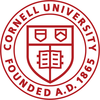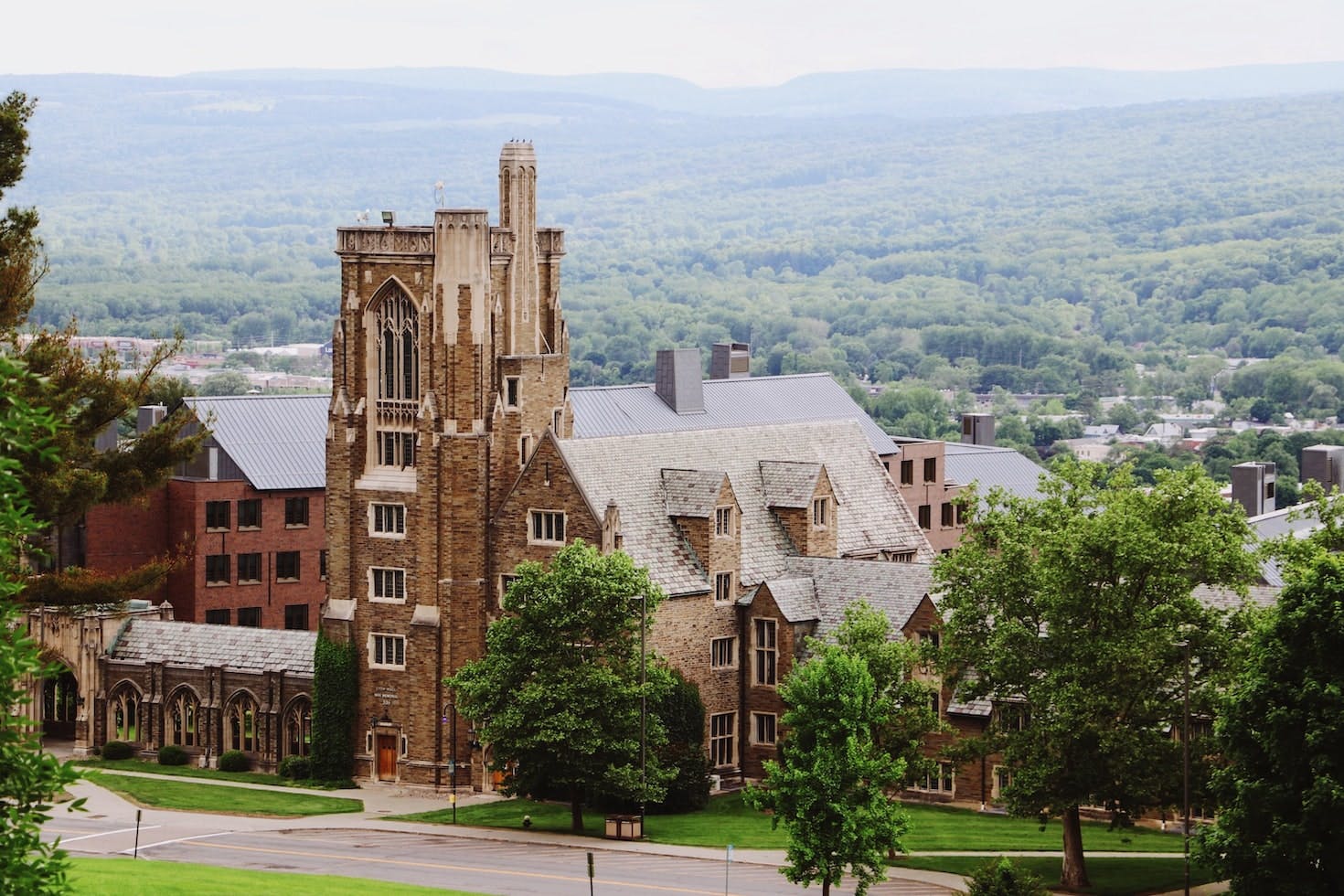14 Essays that Worked at Cornell
Updated for the 2025-2026 admissions cycle.
 About Cornell
About Cornell

One of the most prestigious institutions in the world, Cornell University is an excellent school located in Ithaca, New York. The biggest Ivy League (both by number of undergrads and campus size), it provides a diverse and rigorous learning environment for its students. With multiple academic fields including sciences, mathematics, technology and engineering—as well as specialized colleges open to undergraduates—students have many options to choose from when pursuing their studies. Additionally, Cornell offers countless social and cultural opportunities to further enrich students' college experience. From its world-renowned sports teams to inventive clubs and organizations, Cornell is an ideal learning environment for those who strive towards a premier education.
At a glance…
Acceptance Rate
10%
Tuition
$59,282
Average Cost
$37,042
Average SAT
1480
Average ACT
34
Location
Ithaca, NY
Real Essays from Cornell Admits
Prompt: Why are you drawn to studying the major you have selected? Please discuss how your interests and related experiences have influenced your choice. Specifically, how will an education from the College of Agriculture and Life Sciences (CALS) and Cornell University help you achieve your academic goals?
After boarding a Harbor Tour at the Port of Long Beach, what was once the fresh smell of seawater quickly transformed into the rotten smell of decayed eggs. As the nauseating odor wafted towards me, ambiguous thoughts confronted me: What is this stench? What exactly is causing it? This obscure predicament ultimately spurred my passion and curiosity for marine conservation research (MCR).
To further this passion, I joined the Hawksbill sea turtle conservation research group at UC Santa Cruz’s Science Internship Program. In joining this team, I was able to further my MCR interest at the species level. From the inspirational conversations I had with my sixth-year graduate student mentor about the tagging and mapping process of sea turtles to the Google Maps tours my fellow intern and I gave each other of our respective neighborhoods, I not only gained a new understanding of the scientific world outside my city bubble but also gained a new appreciation for my local community’s academic diversity and determination. The research feasibility limitations of today’s climate have inspired me to search my local community for these opportunities. While species-level inquiries within MCR are most popular, many overlook unconventional methods--my evaluation study on the effectiveness of the Aquarium’s new Ocean Neighbors program for my AP Research class. In finding myself beside like-minded individuals, I obtained new-found confidence and strength, allowing me to flourish in this collaborative academic environment where sharing one’s thoughts is both encouraged and praised. Before these societal constraints, my supervisor tasked me with assembling a mock abalone release crate for one of the Aquarium’s exhibit-interpretation stations. With a limited amount of resources at my disposal, I learned the importance of strategizing beforehand. Instead of carelessly using a hand saw and hot gluing the pipes together, I created drafts upon drafts of sketches, detailing the measurement and placement of each straggling piece of kelp and each hand-made clay abalone. Hence, this intellectual journey allowed me to enhance my creativity in painting the rocky California substrate and finding unconventional solutions to any problems. It turns out that the rotten egg smell comes from hydrogen sulfide, a hazardous chemical that can arise from rotting organic matter--including seaweed, algae blooms, and deceased fish. Yet, research is neverending; it presents even more questions - that is why I love it. With a Cornell postsecondary education, I hope to search for these questions to further the scientific field of biological sciences. With a concentration in marine biology, studying at Cornell will allow me to immerse myself in marine science both on-campus at Professor Harvell’s Marine Ecosystem and Sustainability course--a CALS faculty member who helped place the Sunflower sea star on the IUCN Red List - and off-campus at the Shoals Marine Laboratory - a remote island field station in the Gulf of Maine. Having over 30 minors, CALS would also allow me to pursue interests in other fields of study, such as climate change. Within this minor, the Climate, Archaeology, and History course demonstrates CALS strength in the humanities while the Business and Economics of Energy course displays similar depth in the social sciences--thereby providing students similar academic flexibility to those in the College of Arts and Sciences. As a federal land grant institution in New York state, CALS gears towards giving back to humanity. Through civic engagement in my local community, I have made similar strides. According to the City of Long Beach, "residents and businesses throw away approximately 368,000 tons of residential, commercial, and industrial waste"--that is 1,494 pounds for each 450,000+ individual! For this reason, I helped initiate sustainability workshops throughout our community to help counteract this crisis. Aiming to continue my academic journey to graduate school and beyond, I aspire to have as much an impact on the state, national, and global scale. To me, civic engagement means solving prominent issues facing society--by oneself or, even better, alongside others. Collaboration reaps the ultimate benefits!
Prompt: How do your interests directly connect with Cornell Engineering? If you have an intended major, what draws you to that department at Cornell Engineering? If you are unsure what specific engineering field you would like to study, describe how your general interest in engineering most directly connects with Cornell Engineering. It may be helpful to concentrate on one or two things that you are most excited about.
In Texas, children face a higher risk of fatal car crashes than in any other state, a reality I witnessed first hand after losing friends to the car-dependent infrastructure of the state. In Cornell's strategic plan for 2030, environmental and coding systems are its research directions of priority, making it an ideal environment for smart grid research, contributing to the future of cities made for pedestrians. The EEC major is primarily located in Phillips Hall, directly attached to Duffield Hall, Cornell’s massive nano-technology facility. Making my way in and out of class, I can see myself fascinated by the world there. I hope to further explore nano-technology and how it can more specifically apply to the smart grids of the future, improving the efficiency of current technology. I would cross my classes in ECE in Dr. Albertson’s concentration called, “Engineering Smart Cities,” to understand exactly how power grids need to be improved for the future of cities. Collaborating with Dr. David Bindel, I’d like to explore how coding contributed to making smart grids smart by exploring the algorithms diagnosing its line failures. The Systems Engineering program is interdisciplinary in nature, with Professors like Lang Tong forming a bridge between computer and electrical engineering by exploring how cloud computing can reduce costs in grid optimization. Working with Cornell’s professionals in the CESI, the hub for energy-related research at the university, Cornell proves the most promising in intersecting my dreams of pursuing engineering and contributing to the future of sustainable urban living.
Prompt: What three words best describe you?
There’s the physical aspect: Naomi’s OnShape profile popping up onto the CAD document as I adjust the dimensions of the intake mechanism, me stabilizing the robot as Peter removes the lock-nut behind the motor, Emily spotting me as I bandsaw a sheet of polycarbonate, or Lucas debugging the Java helper function I was working on. Collaboration is the concrete foundation of my robotics-team and manifests itself in every one of our tasks. Yet, there is more to collaboration than its physical embodiment.
There’s the intangible aspect: valuing my team members’ opinions, respecting their unique perspectives, adapting to new approaches, learning different techniques, conceding to my mistakes, and compromising in cases of polarity. It’s the reason the word “team” ensues whenever I say robotics.
Collaboration is the fertile ground for growth, where my strengths become successes. It is the ground where my proficiency in seven programming languages, aptitude in spatial visualization, resilience against obstacles, innovative approaches in engineering, and passion for problem solving can nurture a competitive robot. Whether I am inspecting componentry as the Director of Electronics, researching as the co-founder of [Name Redacted] Science- Publication, or organizing code as the Software Development Project-Manager, collaboration is how I tie my team together.
Find an essay from your twin at Cornell 

Someone with the same interests, stats, and background as you

